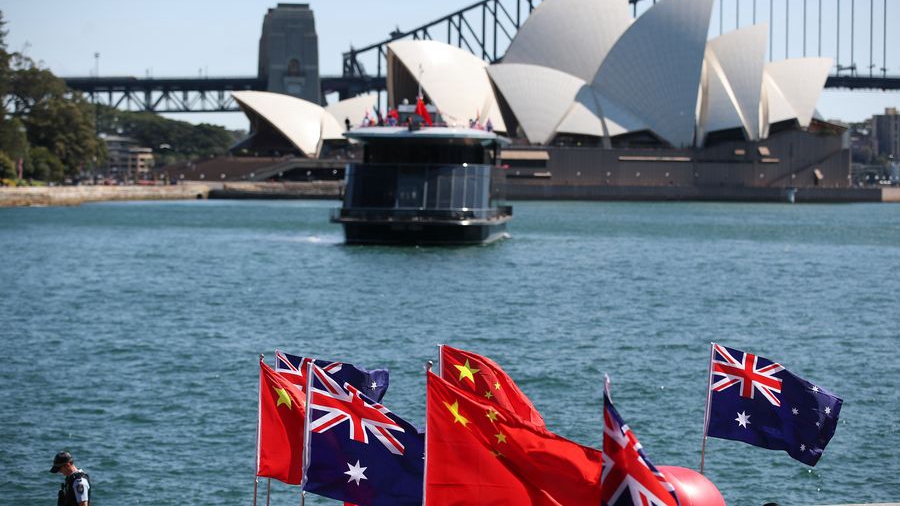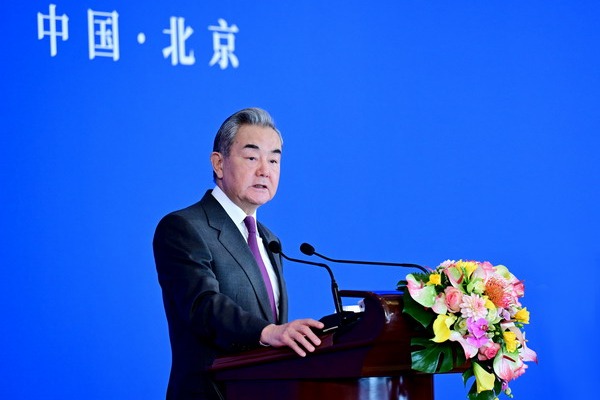Torn-up deals put Australia on wrong path


Move against BRI seen as an example of politics undermining cooperation
Australia's decision to cancel the two cooperation deals between the state of Victoria and China under the Belt and Road Initiative undermines its own federal system and goes against globalization, industry experts say.
Wang Yiwei, director of the Institute of International Affairs at Renmin University of China, described the move by the Australian government on Wednesday as "an egregious incident where economic cooperation is undermined by politics".
Wang said tearing up the deals undermines Australia's own federal system that allows its states to sign cooperative agreements with other countries. "It is against the state government's will to form international economic cooperation," he said.
The two deals were among the first to be axed under Australia's Foreign Arrangements Scheme, which came into force on Dec 10,2020. Another deal between the Victorian government and Iran and one with Syria were also scrapped.
Under the scheme, the federal government has the right to cancel any agreement with a foreign country that it does not deem to be in the national interest.
"The (Victorian) state government was proactively cooperating with China. It was an economic cooperation that completely follows common practices in Australia," said Wang. He said the BRI is about economic cooperation, which not only brings investment from China but also helps strengthen Australia's connectivity with other regions like Southeast Asia.
On Thursday, China vowed to make a firm response to the move by the Australian central government. It said it is dissatisfied with Australia's position and opposes its reversal of the deals. It urged Australia to revoke the wrong decision and change course immediately.
Responding to the comments by Australia's Defense Minister Peter Dutton on Friday, including the allegation that China had engaged in cyberattacks in the region, China's Foreign Ministry spokesman Zhao Lijian said the comments "totally confused black with white".
"The difficult situation in the China-Australia relationship is the result of Australia's moves to grossly interfere in China's domestic affairs and undermine China's interests, and its discriminatory trade practice toward China," Zhao said at a daily news conference.
Chen Hong, director of the Australian Studies Center at the East China Normal University in Shanghai, said the move by Australia was not a surprise since the Foreign Arrangements Scheme was largely regarded as a move targeting Belt and Road cooperation even before it began operations.
"Australia claimed the decision does not target any particular country but in fact China is its biggest target," said Chen. "The other two deals with Iran and Syria were signed a long time ago in the 1990s (and early 2000s). They were just selected to cover up Australia's real purpose."
Vile in nature
Australia's move is vile in nature as it set a bad precedent to scrap an international agreement under the BRI, Chen said. "Australia's hostility against China has been growing to an extent that it does not care about the possible consequences and any long-term benefits."
Noting Australia is politicizing and weaponizing the cooperation in trade and economy to contain China, Chen said he believes the due response by the Chinese government is on its way.
Wang in Beijing said: "What Australia is trying to do by reversing the BRI deals with China run counter to the law of market principle, its domestic system of self-governing, and globalization, which means it will not be sustainable."
In recent years, the economic and trade cooperation between China and Australia has been severely interfered by political ideologies, said Wang, noting this is mainly because Australian politicians try to hijack national interest to serve the military alliance with the United States.
Hans Hendrischke, professor of business and management at the University of Sydney's Business School, said: "It's a diplomatic signal that the federal government is not trying to improve relations with China at the moment."
Even so, he said he believes the Australian business community will continue working with their Chinese counterparts.

































